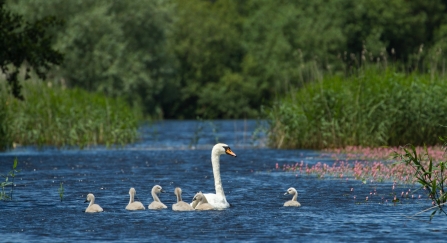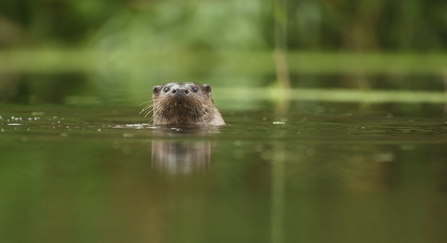Nutrient neutrality rules ensure that developments in designated areas can be approved only once suitable measures are in place to counteract an increase in pollution of our rivers from the new housing. Nitrate pollution is caused by various factors including sewage systems, so waste water produced by new housing contributes to the general deterioration of water quality which is harmful to fish species, plant life and humans. (read more in our blog here)
Georgia Stokes, Chief Executive, Somerset Wildlife Trust and Chair of the Somerset Local Nature Partnership said:
“Nutrient pollution, such as phosphates, is causing massive harm to the UK’s rivers and waterways. Our precious rivers and coastal areas are facing untenable levels of pollution from agriculture, industry, and domestic waste, with only 15% in good ecological status. The situation is acute here on the Somerset Levels. In May 2021 Natural England informed landowners including Somerset Wildlife Trust that they were changing the condition status of the SSSIs (Sites of Special Scientific Interest) on the Somerset Levels and Moors to ‘Unfavourable – declining’ (the worst status before ‘destroyed’) due to poor water quality, including high levels of phosphates.
It is vital that we continue to implement nutrient neutrality schemes which provide cost-effective ways to unlock housebuilding while also mitigating the environmental impact of new developments – and those methods have the added benefit of helping people, communities, and nature too. We also need urgent effective action to reduce the overall nutrient load in places like the Levels and Moors. Reports that the Government has plans to remove the nutrient neutrality requirement for new developments is hugely concerning, and waiting for the delivery of long-term promises of changes to agriculture policy or the installation of upgraded water treatment facilities is not acceptable, we all need to take action now if we are serious about helping nature to recover."


